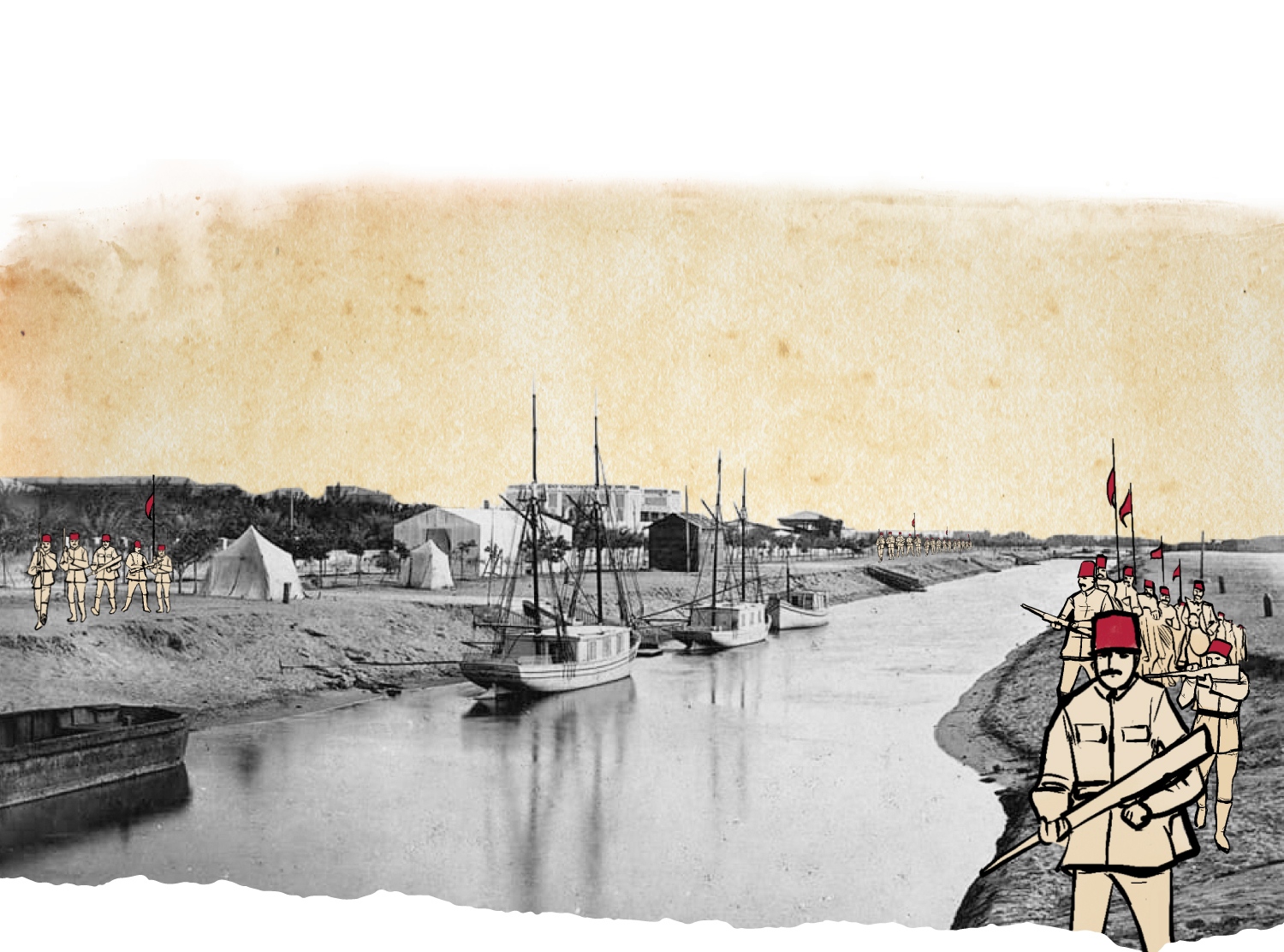
The history of their Turkish state confirms their deception and brutality
King Abdulaziz realized the Ottoman political deception attempts very early
The tension of world events increased in the summer of (1914) after the world experienced a great war for the first time, taking place in the continents of the ancient world, later called “First World War”. This war emphasized the geopolitical importance of the Middle East, a region that played an important role during this war.
In light of these successive events, the founder, King Abdulaziz bin Abdulrahman Al Saud, found himself in a position where he needed to use political wisdom, especially with regard to the balance between the conflicting global powers in the nearby regions in the Middle East.
Although the Ottoman Empire tried to win the trust of King Abdulaziz to be close to it in the balances of war, the founder was well aware that the Ottomans would hurry to break any promises or commitments if these promises and commitments affected their interests. In practice, King Abdulaziz’s vision of the Ottomans was true. Despite the state’s attempts to get close to him, it was providing assistance and support to his opponents directly and covertly against him.
The Ottomans aspired from this contradictory policy with King Abdulaziz to stop the unification of the Saudi homeland, as they did in the era of the first and second Saudi states. They were also in a crisis because of their distance from the Arabian Gulf after their expulsion from Al-Ahsa and the hostility of the growing local powers in it. The Arabian Gulf was a vital region, especially during the First World War. In western Arabia, the Ottoman Empire was seeking to ensure the survival of strong relations with the Sharif of Mecca in order to preserve the false religious propaganda that it promoted in the Islamic world. In addition, they promised the governor of Mecca to preserve the Hejaz Railway, which the Ottoman Empire viewed not only as an important means of transporting pilgrims from the Islamic world, but also a vital means for transporting Ottoman soldiers and supplies to the Arabian Peninsula to support their rickety powers and weak Ottoman influence in the region.
The situation in the region became more critical with the beginnings of the Ottoman campaign on the Suez Canal. This campaign came out of the Levant and crossed the Sinai to control the Suez Canal in order to cut the most important lines of Britain that linked it to its most important colony, India.
During that time, the Arabian Peninsula was suffering from a severe economic crisis as a result of the blocking of trade routes and their difficulty due to the circumstances of the world war. The political powers found themselves facing strong political and economic challenges at the same time, which made the positions of some powers critical in that period that the whole world went through.
At that time, the Saudi state was suffering, like its neighbors, from an economic crisis, especially after its trade with the countries that were affiliated with the Ottoman Empire was cut off greatly. Therefore, King Abdulaziz worked to find solutions to overcome the crisis.
Although the international powers tried to persuade the local powers to ally themselves with them during the war in return for providing assistance, the founder King Abdulaziz preferred to take a neutral position on this general international pressure. This was due to his political cunning. On the other hand, he welcomed the treaties that allow him to impose his conditions in his political and economic relations in which he sees the interest of his land and country.
At the time when the Ottomans were making promises of alliance to the founder, they were supporting his opponents against him.

In 1915, discussions took place between the founder and Britain, which has a presence in the Arabian Gulf. This resulted in the Treaty of Darin, also known as the Treaty of Qatif. The most important clauses of that treaty were Britain’s recognition of Ibn Saud’s independence and his control over the provinces of Najd, Al-Ahsa, Qatif, Jubail, their affiliated areas, and their ports on the coast of the Arabian Gulf. Britain’s recognition is an international recognition in which the matter applies to the rest of the world’s countries, which proceeded after this date to conclude treaties with King Abdulaziz in later periods. The Egyptian historian Abdul Rahim Abdul Rahman mentions his view of that treaty, saying: “The treaty benefited Sultan Abdulaziz in his quest to get rid of the Ottoman Empire and it strengthened his international status”.


- Turkiah Jarallah, King Abdul Aziz’s Attitude towards the First World War (Master Thesis, Umm Al-Qura University, 2004).
- Hafez Wehba, The Arabian Peninsula in the Twentieth Century (Writing and Translation Committee, 1935).
- Khair Al-Din Al-Zarkali, The Arabian Peninsula in the Era of King Abdulaziz, 3rd Edition (Beirut: Dar Al-Ilm LilMalayin, 1985).
- Abdul Rahim Abdul Rahman, Modern and Contemporary History of the Arabs, 5th Edition (Cairo: University Book Centre, 1987).
- Abdullah Al-Othaimeen, History of the Kingdom of Saudi Arabia, 12th Edition (Riyadh: Al-Obeikan Library, 1995).

